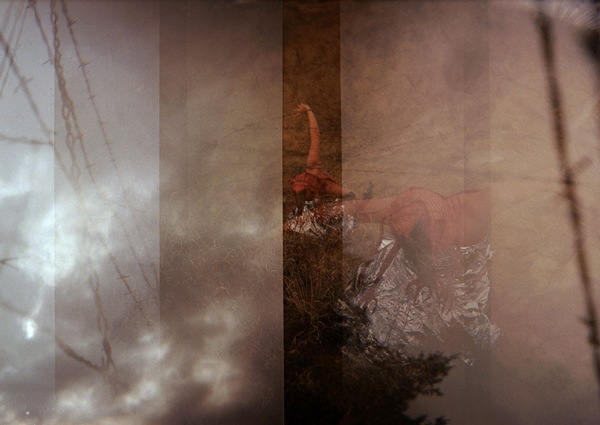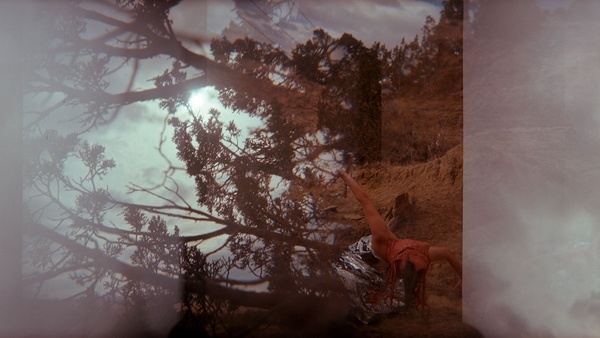
O ONE O
When we do our fieldwork near the safe house, we start by collecting. It’s a simple matter: kick a little dirt and something will shake loose. Tag it. Put it in a bag. Do it again. When the bag is full, send it to the morgue.
Sit down. Take a break. Eat a peach. We always have a few around. Someone figured out how to make them: you start with a seed.
It’s a way of touching flesh with a finger, of feeling your finger poke through. Bruises. And those small hairs, the delicate ones, and the dust that’s settled over them. Particulate. A stone lies in the center of a peach. Weighs it down. Otherwise, it might rise up, instead of falling. The heaviness is necessary.
O TWO O
The girls’ bodies in the ravines. The mouth of the earth, filled with strange fruit.
O THREE O
Aid workers come to the desert borderlands and we harvest the long white sticks of bone. Femicides. Mass graves. Sex-trafficked toddlers dumped in the arroyos. We are the architects of body rock. We run safe houses. Shelters. Morgues. Medic stations. We take in refugees and corpses from a war that has no name. We too are beyond our capacity for suffering but are somehow still, for now, alive. We are all wounded here, all hunted. We are prey, helping prey. Winter cactus rises from our hearts, serrated as ribs.
This desert has more dead than living. The light has shifted to a crisp magenta. It is uterine—the color of both birth and sloughing off.
Throughout my childhood, the girls and the women I loved survived, but did not quite live. I knew the sounds of all our voices raised in fear. I knew the shapes our bodies made as we tended our wounds.
The women’s bodies are stacked six deep, shallow in the sand, and one corpse does not wait long for another to arrive. The killers know when the burial sand is soft enough again, all organs gone, all hair, all nails. At what time does a girl become something to plant seeds in, and under whose authority is what springs from her eaten as food?
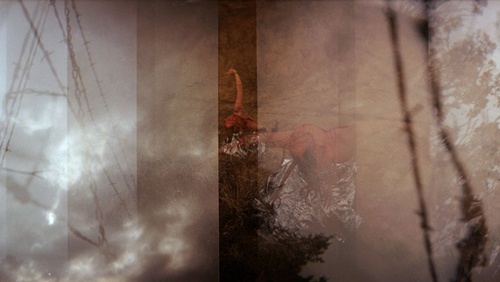
O FOUR O
I grew up nearby—Texas, New Mexico, the edges of the Navaho Nation. Throughout my childhood, the girls and the women I loved survived, but did not quite live. I knew the sounds of all our voices raised in fear. I knew the shapes our bodies made as we tended our wounds. I knew the color of my neighbor’s hair as the police collected it from our sofas for evidence after her boyfriend killed her. Each year something more was missing from each of us. I wanted to grow up and become part of the solution. Over time, I became part of a team. Sometimes we worked for our friends. Other times, we worked for the government. We worked for contractors and subcontractors. And then we worked for whoever hired us: nongovernmental agencies, quasigovernmental agencies, law enforcement, justice systems, bureaus of investigation, intelligence operations.
We were to find the women’s bodies by their scents—nicotine, citrus, fundament, rose attar, fear, lotion. There would be a nightgown, or a ratty chemise, or nothing. A uniform. A church dress. A suit.
The poor dead women.
No longer suspended in armature of flesh and tissue. Their odor slips through the windows, then along the walls and across the roofs to gather there in the adobe, wafting beneath the moon.
O FIVE O
Did we know we were gradually falling apart? It seemed so. It seemed we could feel it happening. Feel ourselves getting lost along the way, a process that should have left us feeling lighter but instead left us emptier. And empty hurt.
Disintegrating into pieces. That’s the last stage.
When there are bits that could be held together, but no skin to make them hold.
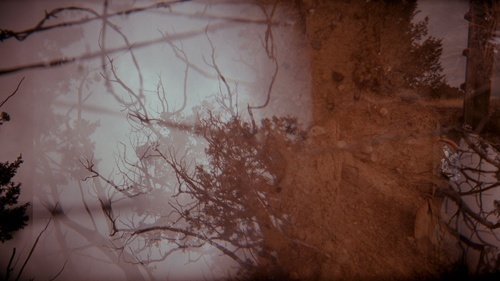
O SIX O
Each day more eviscerated women and children turn up dead. We hold endless meetings of aid workers.
The woman who arrived last night, her ear torn off. We dream: whose ears are whose. We listen to ourselves, the stories we tell officials versus the stories we tell each other.
We have reached inside with real fingers to feel ourselves and we have found our bodies inexplicably disassembled. There is blood, and afterbirth, and sorrow.
Outside the FEMA trailers there are ripples of heat and an odd ice of summer lightning across the lava fields of ancient seabed. The formaldehyde peels our skin. We are snakes in springtime. The woman says to me: What new creatures are we becoming?
Theo, the newest medic, says she can no longer distinguish one desert from another. One bleeding body from its twin. She says: The entire earth has turned to dust in my mouth.
Creatures that can defend themselves, I want to say. I think about survival. How unlikely my own has been. How the skin becomes scales and teeth turn to fangs. How in the showers, we are still soft. We bathe the babies’ bruises. So soft, and I see no scales here.
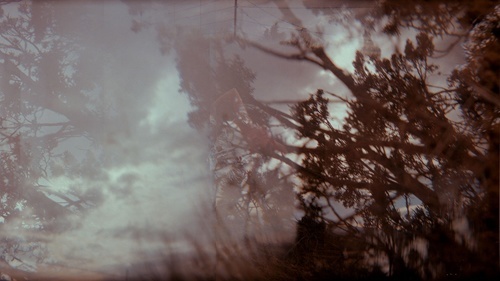
O SEVEN O
The women at the safe house cannot go to the hospital. There is no security for them—their captors, their partners, their predators would find them in their recovery rooms. But at Fort Chiricahua* there are Army medics just back from combat in Afghanistan and Iraq. They come to the secret locations of our safe houses with rape kits. Theo, the newest medic, says she can no longer distinguish one desert from another. One bleeding body from its twin. She says: The entire earth has turned to dust in my mouth.
When I interviewed her, she’d only said she wanted to help. It was lonely on the base at night. It was lonely everywhere at night, but not after we got together.
In the evenings, she and I sorted diapers for the babies who’d been raped. The first bin was newborns to one months. The second bin was raped one to three months. Two other workers sorted the bins for toddlers. And there were others who sorted the diapers for adults. They had wounds down there, and healing would take a while.
After Theo and I fell in love, she brought a couple boxes of newborn diapers from her storage unit. She said she hadn’t known what to do with them after her husband attacked her and her baby. After he had killed her child.
On the weekends, Theo and I would go a few hundred miles south into Mexico with her army buddies—three truckloads of don’t-ask-don’t-tell refugees looking for some down low homo love. Bars. Brothels. Dollar Dances. But after sorting diapers for raped newborns, Theo and I could only get drunk and criticize humanity.
When Theo got redeployed—her fourth tour—I found out she wouldn’t be hiding behind a monitor—she’d be out in an armored personnel carrier with improvised explosive devices and my problematic heart. She had an affair as soon as she learned she was about to go back.
Not uncommon, she said, to try and cushion the big blow by making a lot of initial, softer blows. They all hurt.
Her arms, like pistons, packing up her impact vest. The tumble of hair shoved up into her helmet.
When she’s activated on her fourth tour, Theo posts a photo from Iraq. She’s a medic with a Combat Aviation Division, and she’s shaved her head. Three feet of black curls lost somewhere in the sand. In the photo, she’s muscular in her fatigues, legs tight, she’s reaching up to adjust the delicate wings of her machine. She’s not sweating because it’s already evaporated off her skin. The last time I saw Theo, she was crying, but now her eyes—like the rest of her body—are dry. Her eyes are blue, as if someone cut holes in her face to let the sky show through.
We pin the photo to the wall.
Nothing has changed. Her photo on the wall a way of saying I need love between my legs. A way of saying your eyes are as beautiful as the sky in the desert, when death comes down from nowhere.
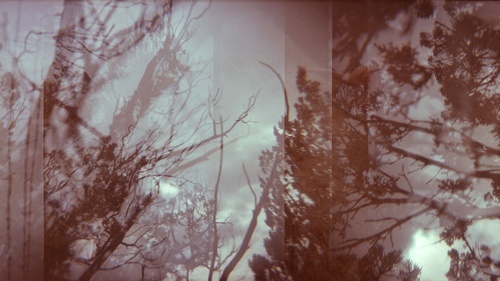
O EIGHT O
There is no such thing as skin, here—we are all cinders, ash and sand and the dry white sediment of minerals seared from the body by this wind. Body hairs harsh and shocked with salt against my tongue: this heat is a kind of cooking. We are rendered, broiled, blackened and then consumed.
We are a flammable cache of cholla in grass baskets. A fire startling in its need to burn.
In front of the ovens, the women’s silhouettes show the suggestion of spines, of scales, of stingers.
The women in the safe houses make tamales, and the aid workers help sell them on the outside. With each day in the desert we learn more about endurance, stamina, survival. In front of the ovens, the women’s silhouettes show the suggestion of spines, of scales, of stingers.
By the second batch of tamales, the agencies have decided they will no longer be allowed. Administrative issues. Labor laws. A tangle of policies surrounding the containment of these women, yet nothing to support their independence.
O NINE O
On Tuesdays, we work in the safe house and at night we drink. Sometimes we need to drink a lot, and at those times we need bars with no men. We need to talk without fear that we could be overheard by the women’s perpetrators, that we could be kidnapped, forced to lead the men to their half-killed girlfriends, wives, daughters, baby sons.
There is only one lesbian bar in Magdalena*, and it’s not really a lesbian bar: it’s a decrepit beauty parlor with sun-crusted posters of outdated hairstyles taped over the windows and greasy hairballs floating in the disinfectant canisters. It’s always closed, unless you have the key. In the back there are a lot of horny women in wedding rings drinking whiskey and on Wednesdays, you’ll see most everybody back at the shelter, cooking up tamales for the beaten-down women and their bruised-up kids.
On Thursdays, we administer Beauty Therapy. We borrow that van with the heavy tinted windows and we load in as many bruised-up women and their beaten-down kids as we can and take them over to the beauty parlor. We polish them up a little, cover bruises, tidy their hair, give them clothes, suitcases, shoes, a stuffed animal. Then smuggle them out the back door, into that van, and over to the bus station. The bus only comes through Magdalena on Thursdays and we let the women point at some faraway place on a map, and then we give them a one-way ticket voucher to get there. The kids are excited to see the dog on the side of the bus. Most of the women can’t see so well out of their busted eyes and they’re tired, and scared, so they get on carefully and we wave goodbye.
Friday is payday in Magdalena and the men are loaded, and they look around for somebody to hit, and if their woman and kids received Beauty Therapy, then the house is empty. If there wasn’t room for their woman in the van this week, then good luck.
Mondays, the aid workers go down south to Peñasco, in the part of Mexico where nobody cares about anything. There, we hold hands and we’re sisters. We kiss on the boardwalk.
On Saturdays, we take that van over to Fort Chiricahua and pick up the surplus bandages and antibiotic ointment and Bactine and the volunteer Army medics we’ll need for the weekend. With a war on, they have more than enough to go around and they use tampons for bullet holes. Then later, on Sunday, they’re all happy to be back at the base again with their own problems.
Mondays, the aid workers go down south to Peñasco, in the part of Mexico where nobody cares about anything. There, we hold hands and we’re sisters. We kiss on the boardwalk. We run our fingers wherever the hell we want and we have loud sex in double beds and eat pussy and out-of-season oysters and there are fireworks and a racetrack and beaches.
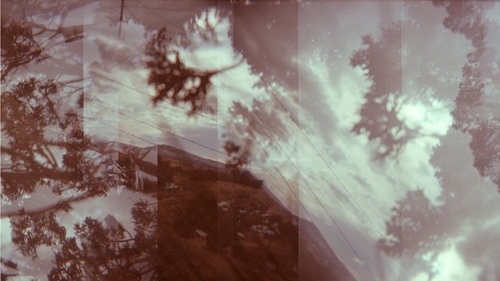
O TEN O
Without a moon, we watch the meteors. We lie quiet in the rocks and dream of scorpions. A stab of pain and then surrender. There is no thought of kissing, of communion. The woman I love tells me to crawl inside her skin, to inhabit her. I think of clinging to her bones from within her flesh. It seems sweet and safe. The desert distills in this way, erodes us to our elements.
To be inside. To seek shelter. To find life. Safety. Love. To want this so badly it becomes impossible to breathe. This the cause of death. This longing for love.
Vultures embrace their prey with the ferocity I feel for her.
In the high light of near night, we and the yucca cast shadows against the pale ash—this mountain the corpse once called volcano. We burrow and tunnel through the soft of it, and in the thick cool comes a hand, subterranean, knowing that here the dark is kinder than the light.
O ELEVEN O
We all went down in the desert. We thought nothing of the loss of appendages.
A bloody stump where once was tail.
Sacrificing a part for the whole.
Bird bones in the silt, half buried, and an open beak.
We are vultures come down to the site of destruction, seeking to birth new life. Between our legs are feathers, wings and claws. Our eggs lie in shards at our feet. Only half-emerged, our dreams are already consumed by ants. They are new and hungry and half-tangled in mucus and each moment they do not fly, we die.
O TWELVE O
Out here, death is no big deal.
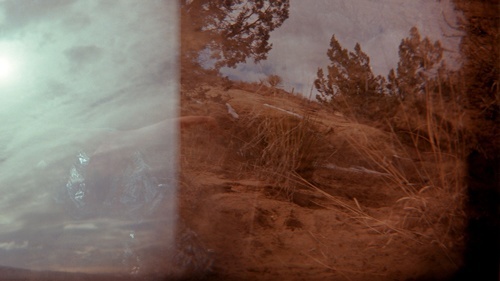
*some names and locations have been changed
